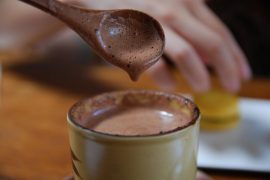John Thurgood
The barricade at the end of the bridge snapped, and splinters of wood slid up the hood of the Lincoln Continental. They peppered the windshield, and a large chunk smacked the glass in front of Nancy. It sent a tangle of fissures rushing outward, and Nancy shrieked. She twisted her hold on the handle above the passenger seat window. She used both hands, and pulled her body tight. Clearly, she had expectations that I couldn’t live up to.
Nancy glanced toward me, and reeled her shoulders to her neck, folding her body in a way that it wasn’t supposed to fold. She held her gaze, her eyes focused with concern. All her theories about the internal workings of a human being slipped away. Her principles didn’t matter. Her notes and her diagrams never left the hotel room trashcan, where I burnt them along with the length of her hair.
I gripped the steering wheel, willing the damn thing to work, but it was no use. The tires couldn’t get traction in the thin air over the bay. These American cars: they advertize like they can fly, but when it comes down to it—lies. All lies.
Pine needles and small branches glided from the grill past the windshield. The side mirror tapped at her window. It hung from a wire. The damn thing knocked loose when we crashed through a farmer’s wooden fence on our way through the countryside. We nearly hit a cow, too. She smiled then. It broke at the side of her mouth, her eyes wide. Her dress showed the slight trim of her body. The frills hid her weak shoulders. I made her steal it, but now I see my mistake.
She hung from the handle. Through a ripped seam at her arm, the skin showed, pale and vulnerable. A cut on her neck bled only slightly. The dress had started out long and billowy, but after dashing through the woods it fit short and tight. She wanted it for the frills. A pragmatist all her life, she never believed in frills. It took only ten minutes in the boutique in Dowing Square, and suddenly, she became a believer.
I stomped the brake, and pumped the gas. I kicked at anything near the floorboard as the Lincoln crested the sorry end of an arc I couldn’t control. The engine roared. A hum came through the seats. The dials in the dash struggled to measure things I didn’t understand.
My seatbelt cut into my collarbone. I heard something pop near my neck, and my left arm fell numb. I forced a sound from my mouth, but it lacked consonants, and my meaning washed away in a wave of pain. I caught her eye, and I forced out the letter U. I spit the letter, but she didn’t blink. A response in its own right. I moved my hand to touch her. Shock had loosened the muscles in her cheek. Her lips parted, but she didn’t make a sound. Her theories on living meant nothing now. The last twenty-four hours wiped them clean. A lifetime of work turned upside down. The old ladies in the parking lot of the Grocery World Super Market beat her with their purses. They tried to help us at first. The crazy broads were concerned about our clothes, my ripped suit and her torn dress. We needed their car, though; we didn’t need their help.
Buildings licked at our back like a tide pushing us out to sea. The Lincoln leaned high on the lip. Nancy jerked a foot to the dash, trying to balance herself. She hit her shin, and the pain registered in a wince. I caught her by the back of her neck. I tried to move my other arm—I wanted to steady her—but my muscles didn’t respond. The blood from her cut smeared under my thumb. Even short, her hair felt thicker than I imagined, hardened from the bleach and a day on the run.
The car shifted again, and we slid weightless up the backs of our seats. My seatbelt pressed hard into my collarbone. The pain returned, and I remembered it was broken. When she opened her eyes again, she was afraid. I made a mistake. Two people died in the boutique. A man and a woman: she was trying on dresses just like Nancy. The boutique was a mistake. Fleeing was a mistake. The dress and the innocent bystanders: that was life.
I pressed the tendons at the back of her neck. Her skin felt blistering hot, and I didn’t know if she was doing it on purpose. I wondered what she had written in those papers. In the hotel room, she tossed them onto the bed, her life’s work. She was smart. She knew how the body worked. It was clear that she was mad at me then. I could have looked at them before I torched them, before I made her cut her hair, but it wasn’t important. I wouldn’t have understood them anyway.
The words still wouldn’t come. I felt my throat close. It felt like my stomach was strangling my lungs. If I could only tell her how stupid she was for wanting that dress. She hated frills. Her whole life she hated them. From the hotel room, we walked over to Dowing Square. She demanded we stop in the boutique. I thought about the trashcan set ablaze in the bathtub. She sat on the bed, while the smell of burnt hair and rust filled the hotel room.
John Patrick Thurgood is an MFA candidate at University of California, Riverside. His work has appeared in Untoward, Freedumbzine, The Logan Square Literary Review, and This Zine Will Change Your Life. You can see a trailer for this story here.


